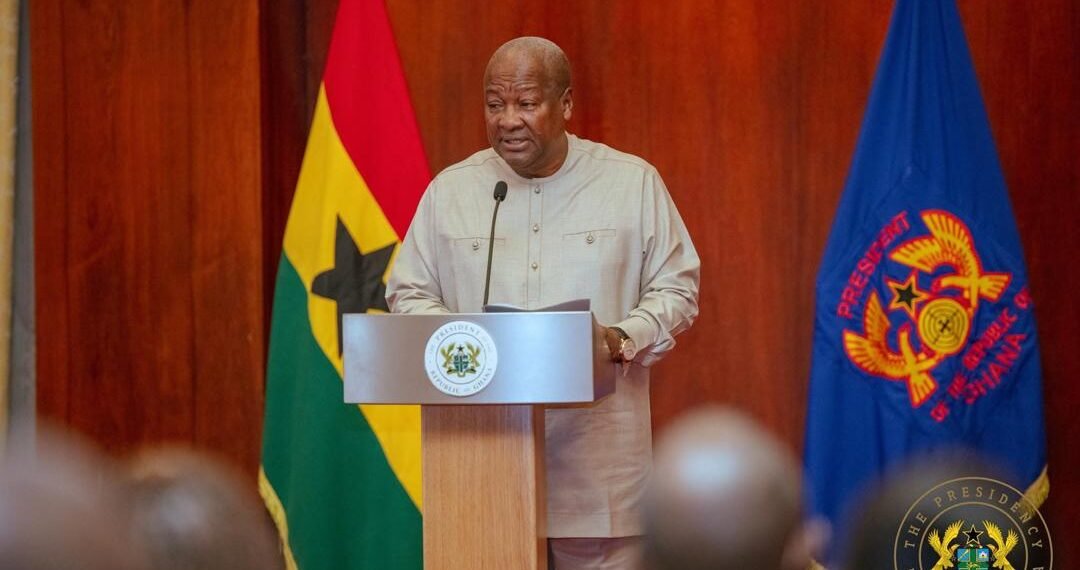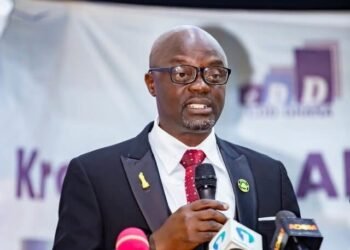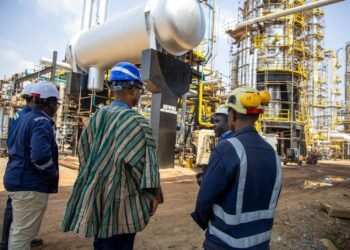In a bold step to redefine Ghana’s economic architecture and restore global competitiveness, President John Dramani Mahama has officially inaugurated the Accelerated Exports Development Advisory Council (AEDAC), a high-powered body designed to steer Ghana toward a transformative and inclusive export-driven future.
Chaired by the President himself, the AEDAC brings together an influential mix of government technocrats, policy strategists, and key institutional leaders.
The Council includes Augustus Goosie Tannoh, the Presidential Advisor for the 24-Hour Economy and Accelerated Export Development; Dr. Cassiel Ato Forson, the Minister for Finance; and Hon. Eric Opoku, the Minister for Agriculture.
Other members of the council include Hon. Elizabeth Ofosu Adjare, Minister for Trade and Agribusiness; Hon. Dr. Dominic Ayine, the AG and Minister for Justice; and Anthony Sarpong, Commissioner-General of the Ghana Revenue Authority, among several others.
Speaking at the inauguration, President Mahama described the Council as a critical step in his administration’s collective resolve to transform Ghana’s economy through competitive exports, inclusive industrialization, and purposeful integration into regional and global markets.
He emphasized that despite Ghana’s vast potential, the country’s export sector remains beleaguered by structural inefficiencies, policy incoherence, and institutional inertia.
“Nearly 47% of Ghanaian exporters report facing serious trade obstacles. With non-tariff measures and procedural delays accounting for most of these challenges. Over 52% of the complaints relate to costly and time-consuming technical regulations and multiple poorly coordinated agencies imposing.”
President John Dramani Mahama
President Mahama further noted that the Ghana Standards Authority, tasked with ensuring product quality, remains under-resourced, while the lack of accredited local laboratories forces exporters to seek foreign certification—driving up costs and extending lead times for export approvals.
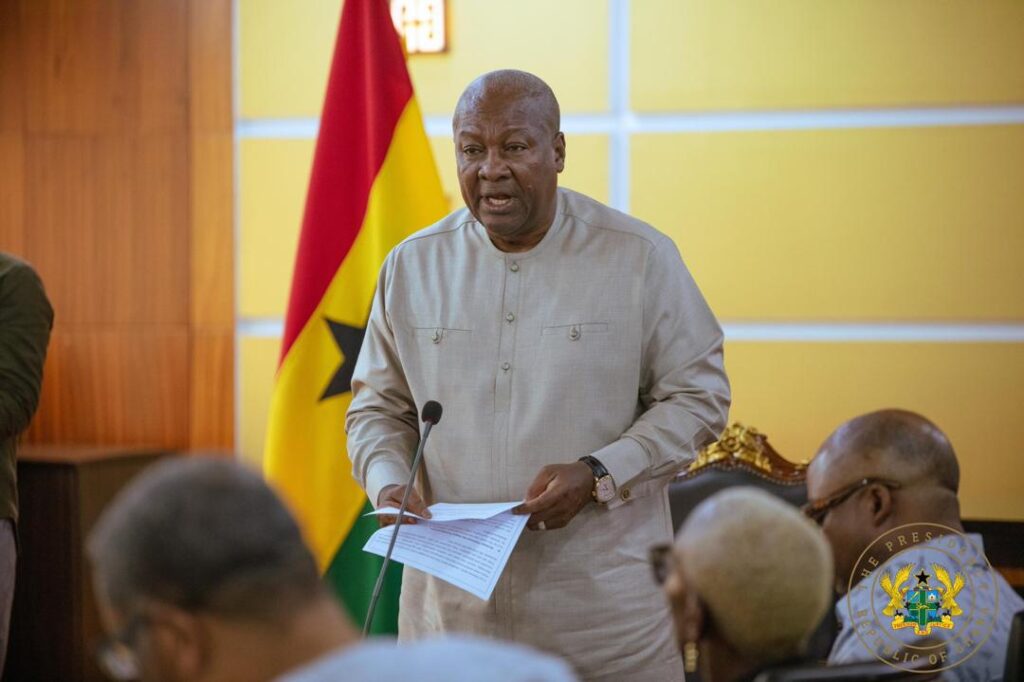
The President decried that the economic implications are staggering, noting that estimates from the International Trade Centre revealed that Ghana loses up to $4.3 billion annually in export revenue due to these inefficiencies.
A particularly affected sector, according to President Mahama is fisheries, where recurring alerts from the European Union over illegal fishing practices and contamination with hydrocarbons and heavy metals have led to temporary bans on Ghanaian fish exports—eroding global trust and causing severe reputational damage.
“Alarmingly, women and small and medium enterprises who represent a vital source of innovation and resilience account for less than 4% of Ghana’s exporting capacity and delayed prosperity. And we must and will correct this.”
President John Dramani Mahama
The AEDAC, the President explained, will serve as a high-level platform for strategic coordination, policy coherence, and institutional accountability.
It will be the guiding force behind both the National Export Development Strategy and other complementary frameworks.
The target is ambitious: to grow Ghana’s non-traditional export earnings from the current $3.5 billion annually to at least $10 billion by 2030. Key to this agenda is a decisive pivot toward value addition and economic diversification.
Raw Materials Dominating Ghana’s Export
President Mahama highlighted that Ghana’s current export basket remains dominated by low-complexity raw materials—gold, cocoa, cashew, and timber—typically exported in their unprocessed form.
“In the global economic complexity index, we rank 110 out of 133 countries. This must change. We must act to decisively harness the potential of a $6,000,000,000 regional market. Ghana has the potential to substantially increase our exports of garments across Africa and to the world.”
President John Dramani Mahama
Part of the Council’s vision includes expanding Ghana’s presence in high-demand, value-added sectors.
These include garments and textiles, where Ghana has a competitive edge but underwhelming market presence.
According to President Mahama, through targeted incentives, local production will be scaled up to strengthen participation in global and regional garment value chains.
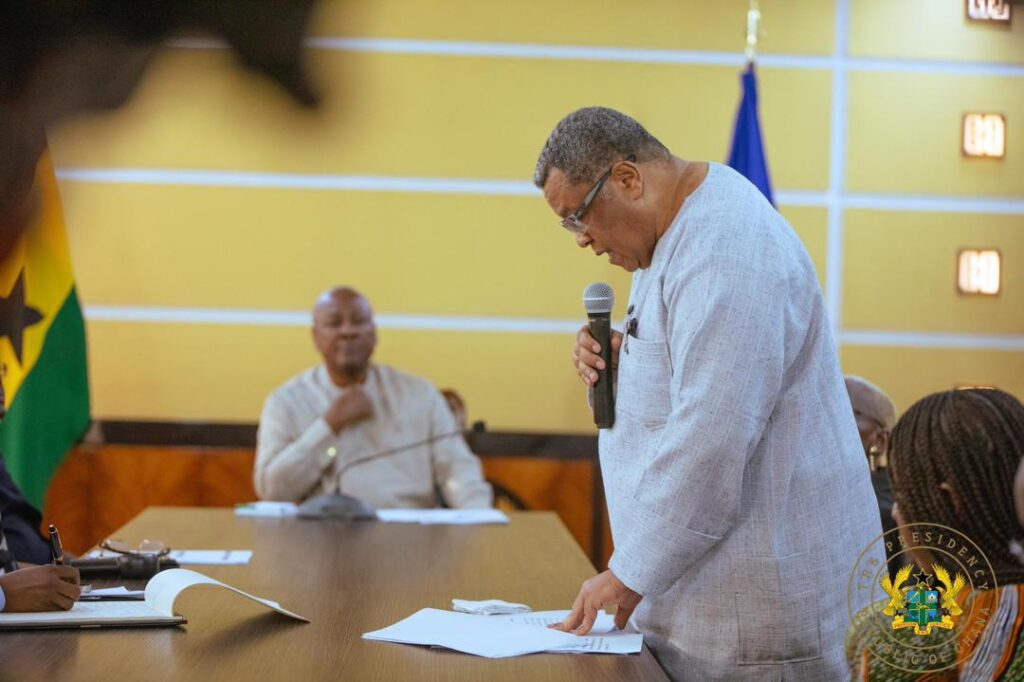
He also pointed out that the 24-Hour Economy Strategy will be instrumental to this vision, asserting that the initiative will target specific value chains in cassava, tomatoes, palm oil, pharmaceuticals, textiles, garments, and industrial machinery.
The overarching goal, according to the President is to reduce Ghana’s industrial machinery trade dependence from 14.7% to under 5% by building internal capabilities.
Additionally, President Mahama noted that no export strategy can succeed without robust logistics and trade infrastructure.
Ghanaian exporters currently face some of the highest logistics costs in West Africa, with export clearance times exceeding regional averages.
In response, President Mahama assured that his government will embark on a modernization drive, including the revamping of the Volta Lake Transport Company, development of the Mpakadan Port, operationalization of the Boankra Inland Port, and expansion of cold chain infrastructure to support fisheries and horticulture.
“These interventions are critical to improving transportation, processing system, establish transparent border management protocols, and introduce fast track inspection to improve efficiency and trust to scale.”
President John Dramani Mahama
Unlocking AFCFTA’s Benefits
With access to a continental market of 1.3 billion people and a combined GDP of $3.4 trillion under the African Continental Free Trade Area (AfCFTA), Ghana stands on the cusp of immense opportunity.
In 2024, the country certified 19 companies under the AfCFTA’s rules of origin framework, with the President predicting that by 2025, this number will be tripled, and special training programs will be launched to equip youth and women-led businesses to trade competitively across the continent.
President Mahama stressed that Ghana’s strategy would not be limited to physical goods, adding that the diversification drive will target digital services, creative content, and knowledge-based exports, aiming to tap into fast-growing global demand in these sectors.
Markets beyond Africa—such as Asia, the Middle East, and Latin America—will also be aggressively pursued.
“To compete globally, we must equip our people. We’ll pursue reforms in vocational and technical education, aligning curricula with the needs of agro processing pharmaceuticals, textile manufacturing and industrial fabrication.”
President John Dramani Mahama
Initiatives like the Adwumawura Program, the 24-Hour Economy Plan, the 1 Million Youth in Coding, and youth-focused projects under the Youth Employment Agency, according to President Mahama will provide expedited global-standard certifications and digital marketing access platforms.
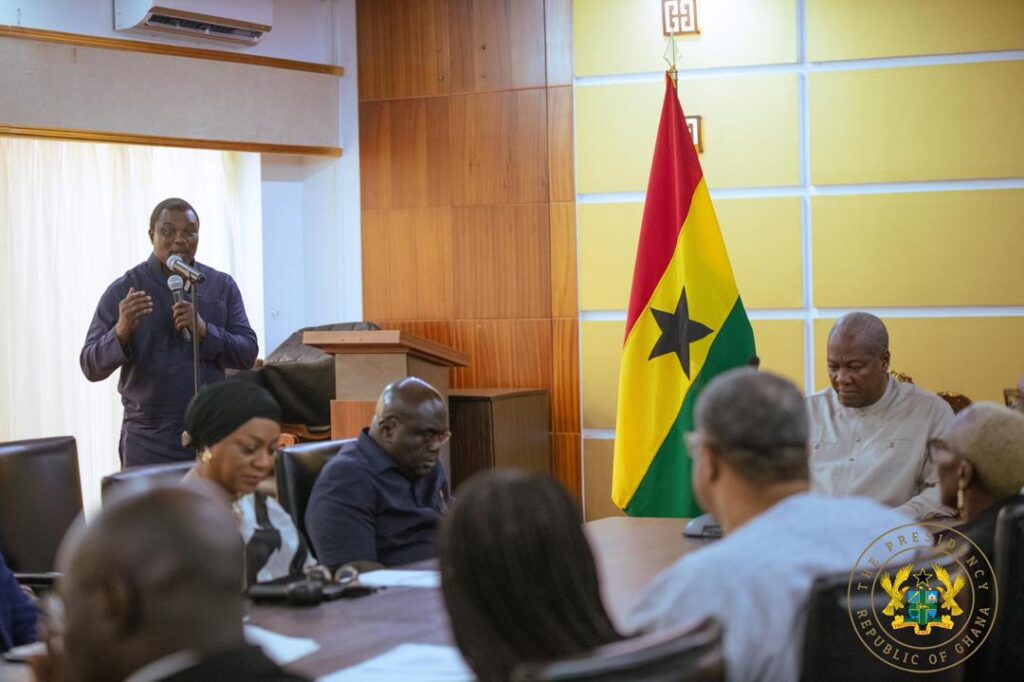
Moreover, the President indicated that export-oriented enterprises will benefit from research grants, production incentives, and support to integrate into global value chains.
A focused national campaign will also be launched to promote Made-in-Ghana goods across the globe.
Reliable energy supply remains a top concern. The President outlined an innovative energy mix strategy that will involve solar power, biogas, natural gas, microgrid turbines, and embedded energy systems targeted at industrial zones.
“We cannot power an export economy on unreliable energy. We will fix it,” President Mahama pledged.
Concluding his address, the President acknowledged the evolving global trade environment, characterized by rising protectionism and intensifying competition.
“We must respond with vision, unity, and determination. The AEDAC will work closely with all stakeholders to unlock opportunities and drive coordinated reform. Supported by the 24-Hour Secretariat, the Council will partner with GEPA and the Ministry of Trade to move Ghana from potential to performance.”
President John Dramani Mahama
In an emotional and charged final note, President Mahama declared: “Let us act with purpose and urgency. Let us build a Ghana that earns more than it borrows, a Ghana that processes more than it exports raw, a Ghana that creates jobs through competitive exports and not just slogans.”
He concluded by thanking members of the Advisory Council for accepting what he described as “a national responsibility of immense significance” and formally inaugurated the Council to resounding applause.
READ ALSO: President Mahama Launches Code of Conduct to Drive Ethical Governance

